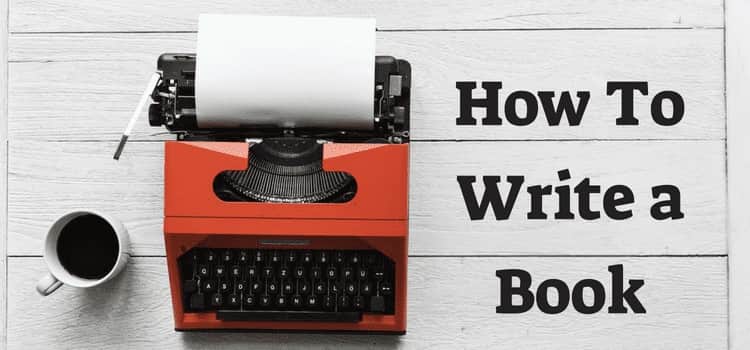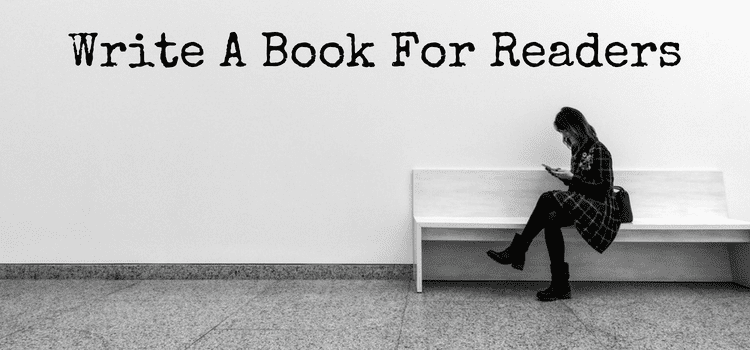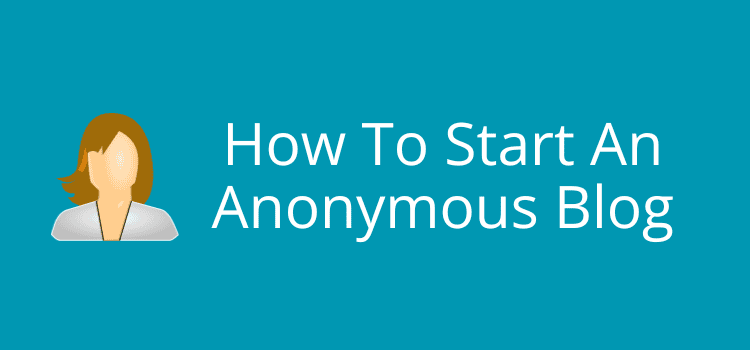
You want to know how to write a book, but you’re not sure where to start.
If you have ever dreamed of writing a book and becoming an author, you’ll find no better time than now to do it.
It’s easy to write a book. All you need to do is write between 40,000 and 80,000 words or more, and you are done.
Sounds easy, doesn’t it?
A book needs a lot of words
Well, yes and no.
It is not the number of words that is important; it is how you put your words together.
“At the end of all this being-determined-to-be-a-jack-of-all-trades, I think I’m better off just sitting down and putting a hundred thousand words in a cunning order.” Douglas Adams
The writing process is about painting a mental picture with words that readers can then imagine in their mind’s eye.
Famously, Ian Rankin never describes Inspector Rebus in his many books.
However, within the words and lines of the Rebus stories, readers can create their own realistic image of him.
Quite short, a little rotund with a beer belly and rarely smiles is my image.
If you have read books by famous writers like Stephen King, James Clavell, or Dan Brown, you have experienced how well they can paint mental pictures.
The ability to communicate with a reader’s imagination is not restricted to a fiction book.
It is just as important for a nonfiction book and even self-help books.
Where do you start if you want to write a book?
If you are reading this article, you have probably read many others.
This is a good sign that you are keen and ready to learn how to write a book and start writing it.
There are no strict rules or golden writing tips, however.
Every writer takes a different approach to writing a book.
What works for one writer might not work for another, and that’s perfectly okay.
However, there are some basic steps that most writers use when they start a new book writing project.
Whether writing fiction or nonfiction, starting with a sound plan and outline will make all the difference.
You can experiment with different methods, outlines, and writing schedules.
These will help you learn more about your writing style and preferences.
Writing is as much about discovery as it is about creation.
In the process of writing your book, you will discover what works best for you.
However, the following tips will help you create a framework that will keep you focused and motivated while writing your book.
These tips will serve as your foundation for everything from finding your initial idea to developing characters, plotting your story, or structuring your chapters.
Are you ready to start?

1. It always starts with a brilliant book idea
Maybe you want to write a science fiction space opera, a period romance, or a cozy mystery.
No matter what genre you prefer, you will need to dream up a good idea for your plot.
The best way to do this is to forget about writing your book for the moment and concentrate solely on writing one or two-sentence stories.
Perhaps Douglas Adams wrote, “Just before Earth gets blown up, a man escapes with an alien and becomes the last human in the Universe, and he gets awfully confused about it all.”
Think about a bestselling book that you read and liked. Now, try to reduce the story to one or two sentences.
If you can do that, you are ready to create your own.
Every time you have an idea, write it down in no more than two sentences, and make sure you keep a list of all your ideas.
I have had a file for years where I keep my little sentence ideas. Most have never been used, but I never delete them.
You never know, do you?
One book I wrote came from an idea I had filed away more than four years before.
Set yourself a target and try to find one new idea every day for two weeks. Out of the fourteen, one will jump out at you as the best one.

2. You can’t build a house by starting with the roof
Any project needs some type of plan.
There are two generally accepted types of authors.
Some authors plan every detail of a story in advance and know precisely how it will end.
They draft meticulous outlines before they do any actual writing. You could call them Plotters who plan every detail.
Then there are authors who often say they let their characters lead them through the story.
It is a highly creative method and has been a successful strategy for many authors.
Perhaps you could call them Pantsters, as they really do fly by the seat of their pants.
But even the Pantsters need a base from which to start: an idea and a rough outline of how the story will develop.
Many writers start by writing only the chapter titles.
These can be changed later during the writing process. But they give you a great foundation when you get to the writing of your book.
Another way to prepare is to use book writing software that is specially adapted to novel writing and not a word processor like Microsoft Word.
Software designed for writing a book usually comes with added functions.
This allows you to keep notes and ideas, plan characters and timeline events, and work on individual chapters of your book without having to scroll through a long document.

3. Time to do something about the dreaded white page
Every book starts with a blank white page. Scary.
But it is not such a big deal. It only takes a few words, and the page is no longer blank.
Start with your first chapter idea as your first few words, and then hit return.
Now, write a subject and a verb, and you are on your way. It was …, there were …, some think …, I have … or, she thought.
Don’t worry about what you write; get fifty words on there, and you will be away.
You can, and definitely will, come back to rewrite them later. But for now, just write.
Refer back to your one or two sentence idea to focus on the task. Once you’ve written a few hundred words, you will have started writing your book.

4. Write, write, and just write, no matter how long it takes
Some say that writing a book is hard work, but I disagree.
It is an immensely rewarding process. Once you get through the first few paragraphs of the first chapter, it can become a wonderful compulsion.
However, one very important point to remember is that you are writing your first draft. It will not be perfect, so don’t aim for perfection in any form.
Turn off any grammar checkers you might have, and even spell checkers.
If you are an all thumbs and a slow typist like me, you might want to keep your spell checker on for typos, but honestly, you will write better with no distractions.
You have probably read already about setting yourself a daily word count. I am six of one and half a dozen about the other about this advice.
If you think you need discipline, then yes, set yourself writing goals. One thousand words a day is not that difficult to achieve, and doubly so on Sundays.
At that rate, you will have written the first draft of your book in two to three months.
Setting aside parts of your day as your writing time is not difficult. It doesn’t need to be in one hit, though.
Twenty minutes after breakfast, half an hour at lunchtime, and stop watching TV in the evening can all add up to one thousand words a day quite easily.
On the other hand, you can write when, well, when your writing juices are ready to flow.
I remember when I wrote February The Fifth, I almost (pardon the expression) vomitted the story. I wrote the first draft in less than a month.
But it took me over two and a half years to write the first draft of Louis due to the amount of research I needed to do for almost every part of the book.
Every book I have written has taken a different route. I wrote some with word count goals, while others evolved as and when I wanted to write.
If you are planning on writing your first book, though, I would advise finding a quiet writing space and setting a daily writing goal.
It will help to keep you motivated.

5. I’m stuck, I’ve got writer’s block, and I’ll never finish this book
Welcome to being an author and learning how to write a book.
There will definitely be times when the words just will not flow. But you don’t want to stop writing your book. So what can you do?
The best advice is to stop writing when the words come agonizingly slowly or not at all. Walk away, change your mind, and do something that you enjoy.
Some writers like to go for long walks, while others bake a cake or go to a bakery and buy one.
Something else that works for some is to write a short story or a poem to change your mindset but still keep writing.
You can always read a book for a while. How long is it since you read Harry Potter?
Once your mind is clear again, then get back to writing your first draft.
You can read more in this article about 17 ways to cure writer’s block.

6. It’s not a book yet; it’s your first draft
There will be no book until you finish writing your first draft.
It will not be perfect, so don’t worry about anything except getting your ideas out and writing your story.
But do make sure you save, file, and back up your manuscript meticulously.
Don’t worry about editing, typos, spelling mistakes, or plot holes. Just write.
Writing your first draft is the most creative part of writing your book, and you should feel free to let your imagination run wild.
During this stage, you will discover that ideas can come anytime. So keep a notebook handy, or use your phone to jot down any ideas that pop into your mind.
Tip! One small piece of advice I give new authors is never to write in your mind.
Words often flow very easily when you are relaxing, readying for sleep, or bored to tears at work.
But never trust your mind to remember all these words and ideas for your next writing session. Take notes immediately.
Another point to ignore while writing is your story’s word count. If your writing software shows a word count, turn it off. A great story is not judged by how many words it takes to tell it.
It doesn’t matter if your story takes 30,000 or 120,000 words to tell; it doesn’t matter.
Write your draft, and forget about the distraction of numbers and totals. Mathematics has no part in the creative process of writing a book.
Just write!
Once you have finished and typed “The End,” you will feel fantastic.
Your last task will be to decide on a title for your new book.

7. The End is only the beginning
Once you have finished your first draft, the hard work really begins. So take a break and forget about your book for at least a couple of weeks.
It will take you weeks, months, or even longer to work through the stages of ‘taming’ your draft.
But once you are ready, start working on your second draft.
Importantly, NEVER overwrite your first draft manuscript!
Save it safely and back it up. Then, make a new copy that you will use for your second draft.
It is when you will make changes, write additional scenes, rewrite parts, correct plot errors, or add plot twists.
It is still a draft. So again, don’t worry too much about correcting grammar, punctuation, and line editing. Concentrate on your story.
When you have finished your second draft, it will be time to start on the third.
This is when you should start doing your thorough grammar and spell-check.
There are lots of grammar checkers, both free and premium.
And then, once you are finished, perhaps it will be time for a fourth draft.

8. Now you need help with your book
The next stage is when you need to let go of your story and start the process of turning your story into a book.
You will need an editor or at least someone else who is competent at line editing, grammar correction, and accurate proofreading.
If you can afford it or know someone with developmental editing skills, that would be even better.
It is impossible for an author to be critical enough to do this work. You have to get independent help in preparing and fine-tuning your manuscript.
The last stage in the process is to use beta readers to give feedback on your book. The more, the better.
Then, once you have all the corrections, edits, and reader feedback, make the necessary changes to improve your book one last time before you even think about querying agents, looking for a publisher, or self-publishing.

9. Getting your book published
If you want to take the traditional route with major publishers, you will need to query literary agents. It’s not an easy path, but you never know your luck.
You could also query small press publishers to see if you can attract some interest in your book.
However, self-publishing is often the easiest way to publish your book.
Here are two of the most popular services.
Amazon Kindle Direct Publishing (KDP). KDP is Amazon’s self-publishing service for ebooks and paperbacks. As far as book sales go, Amazon is the undisputed market leader in ebook and book sales.
Draft2Digital (D2D). An aggregating publisher and distributor of ebooks to Apple, Barnes and Noble, Kobo, and Scribd, amongst many others.
These service providers have well-written Help sections to guide you through the necessary steps to publish your book.
Formatting your Word document for publishing
You must format your Microsoft Word document before you upload it for publishing on any of the service providers mentioned above.
It is essential, especially for an ebook, that your formatting is consistent throughout your book.
You can read our tutorial on how to do a comprehensive clean and format of a Word file. It is sometimes called the Nuclear Approach.
Should you wish to publish in paperback, there are a few providers, but from my experience, only Amazon KDP offers a free service to publish in paperback form.
There will only be a charge if you wish to buy copies of your book.
Prices are very reasonable, though, at around $3.85 per copy, plus postage for a 250-page book.
Part Two – Writing for readers

If you want to know how to write a book, it starts with a writing process.
All good writing starts with an idea and a plan.
When you sit down to write anything, the first thing you need to have is a good idea.
It doesn’t matter if your writing is a blog post, article, short story, fiction book, or nonfiction book; you need to draft a plan before you start writing.
Writing an outline is the first part of writing a book. It doesn’t need to be overly long, but you should note how your plot will begin, develop, and end.
Don’t worry about all the small details. Keep it to a few paragraphs or perhaps one page at most.
For some writers, noting rough chapter titles helps them clarify how the novel or nonfiction story will develop in a logical progression.
Your plan is sometimes the hardest part of the writing process. But once you’ve written the framework for your book idea, you’ll find it helps enormously when it comes time to write your first draft.
If you have more than one book idea, write an outline for each one.
It takes a long time to write a book. If you can be clear about which idea will be the best, you can devote your writing time to that project.
Writing books or even short stories takes time.
But once you’ve started on chapter one, allocate yourself a daily word count, and make it a writing habit, you know that you will finish writing your story.
But before you start … STOP right here!
You have a great plan, but it is missing one extremely vital step
Too many authors now rush into writing and publishing a book.
How often have I heard this?
“I wrote a book, but no one is buying it. I did a free ebook giveaway and all the social media stuff on Facebook and Instagram and everything. What’s wrong with people?”
People? Who are these people that have something wrong with them?
There is nothing wrong with people, but there is definitely something wrong.
The problem is in thinking that everyone will want to buy your book. In fact, the exact opposite is true.
Very few people will be interested in your book. But if you can imagine who these few people are, you then might have some chance of success.
When you finish writing your book outline, ask yourself this simple question.
Who will want to read my story?
Your answer will involve demographics and your book genre.
In other words, will teenagers want to read your book about a World War Two fighter pilot?
Will women between 45 and 60 want to read your book about a teenage vampire?
Who will be interested in reading about overcoming depression or surviving a divorce? Millennial males?
You want to write a romance story, but what type of romance reader will it be for?
Hot erotic, cozy romantic mystery, or historical period romance. Will men between 18 and 45 rush to read it?
If you write fiction and can’t identify your book’s very specific genre or the gender and age of potential readers, you will waste a lot of time and money promoting your book to – everyone.
You must know who you are writing for
You don’t have the advantage of being a bestselling author like Stephen King, Dan Brown, or J.K. Rowling with her Harry Potter brand.
But readers do buy good books, and a lot of self-published authors have had bestselling books. Think here of E. L. James.
The difference between success and failure in writing a book can be as simple as knowing who you’ll write it for and imagining your potential readers as you do.
It will focus on your writing, your characters, and the type of vocabulary you use.
Writing a book and then trying to decide if it is general fiction, contemporary fiction, science fiction, or romance is a sure sign that the writer has no idea who will be interested in reading it.
Then, when you finish writing your book, and it goes on sale, and no one buys it, you will ask, “What’s wrong with people?”
Knowing your genre and readers will help your writing process
Understanding that you are writing in a specific genre and for a defined demographic helps you in so many ways.
If you plan well, writing your book will be much easier.
However, when it comes to publishing, it will be much clearer to you which three genre categories and seven keywords you will choose to best suit your book.
Doing this will help your book’s discoverability and saleability chances.
When you plan your book launch, you will have a much better idea of how to answer the how, where, when, and why questions.
For example, if your book is about housetraining a puppy, contact some pet blogs and see if you can guest post or even advertise your book.
Do the same if your book is a memoir on surviving loss or a self-help book about migraines.
When your book is on sale, your planning will help you target your book promotion more precisely.
If you run a Facebook Ads campaign, you can target specific genders, ages, interests, and locations.
You will be wasting a lot of money on a campaign broadly targeting the US and UK, age 18-65, interests-books.
If your book is a Tudor romance, you might try UK, South England, female, age 40-55, interests-period romance books.
Similarly, for social media in general. What use would there be in promoting a book about preparing for retirement on Instagram?
If it is a political thriller set in current times in Washington, Facebook would be a waste of time, but X (Twitter) could be a winning strategy.
Knowing who your potential readers are is a huge advantage.
Now start writing your book

You have finished your story outline, and you know your precise genre. Write your story.
But from word one, visualize your reader. Imagine that they are sitting in front of you, and you are telling them your story.
If you are writing a teen paranormal romance, make a picture in your mind’s eye of three or four teenage girls listening intently as you tell them your tale.
If you are writing a cozy mystery, imagine your reader with legs curled up on a sofa and a box of chocolates.
When you can vividly imagine your readers, it is amazing how rarely you will experience writer’s block.
You will know exactly who you are writing for, which will help you become a true storyteller.
All writers create a mental image of their imaginary characters, so why not imaginary readers?
Sure, it’s a mental thing. But if you can grab the attention of your imaginary readers, you are on your way to hopefully getting the attention of genuine book buyers when you publish your book.
Stay motivated and get it done
Don’t aim for perfection as you write.
Use your motivation to write and forget about agonizing over grammar, sentence structure, or even your word count.
Just follow your outline plan and get your story out of your mind and into words on pages.
It doesn’t matter if it takes you weeks or months; simply focus all your energy and attention on getting your words written.
Finishing your first draft is the most important part of writing a book. No book has ever been published without one.
There will be plenty of work to do after you have finished. To start with, there will be a second and third draft, editing, line editing, proofreading, beta reading, and designing a book cover.
But all of this work is mechanical. It is not creative.
The only creative action in writing a book is writing your first draft.
So, don’t allow your creativity to be curtailed by thinking about all the mechanical aspects, such as passives, cleft sentences, commas, or run-on sentences.
Stay motivated and just write, write, write.
When you finish writing your first draft of your manuscript, you will have written a book – for your readers.
Summary points
1. Start with a great idea.
2. Turn your idea into a detailed outline.
3. Decide on your genre.
4. Imagine who your target readers will be.
5. Start writing your book.
6. Push through stages when the words are hard to find.
7. Celebrate finishing your first draft.
8. Edit, perfect, and proofread carefully.
9. Prepare a launch plan and book promotion before you publish.
Related Reading: How To Self-Publish A Book Written By Your Child



